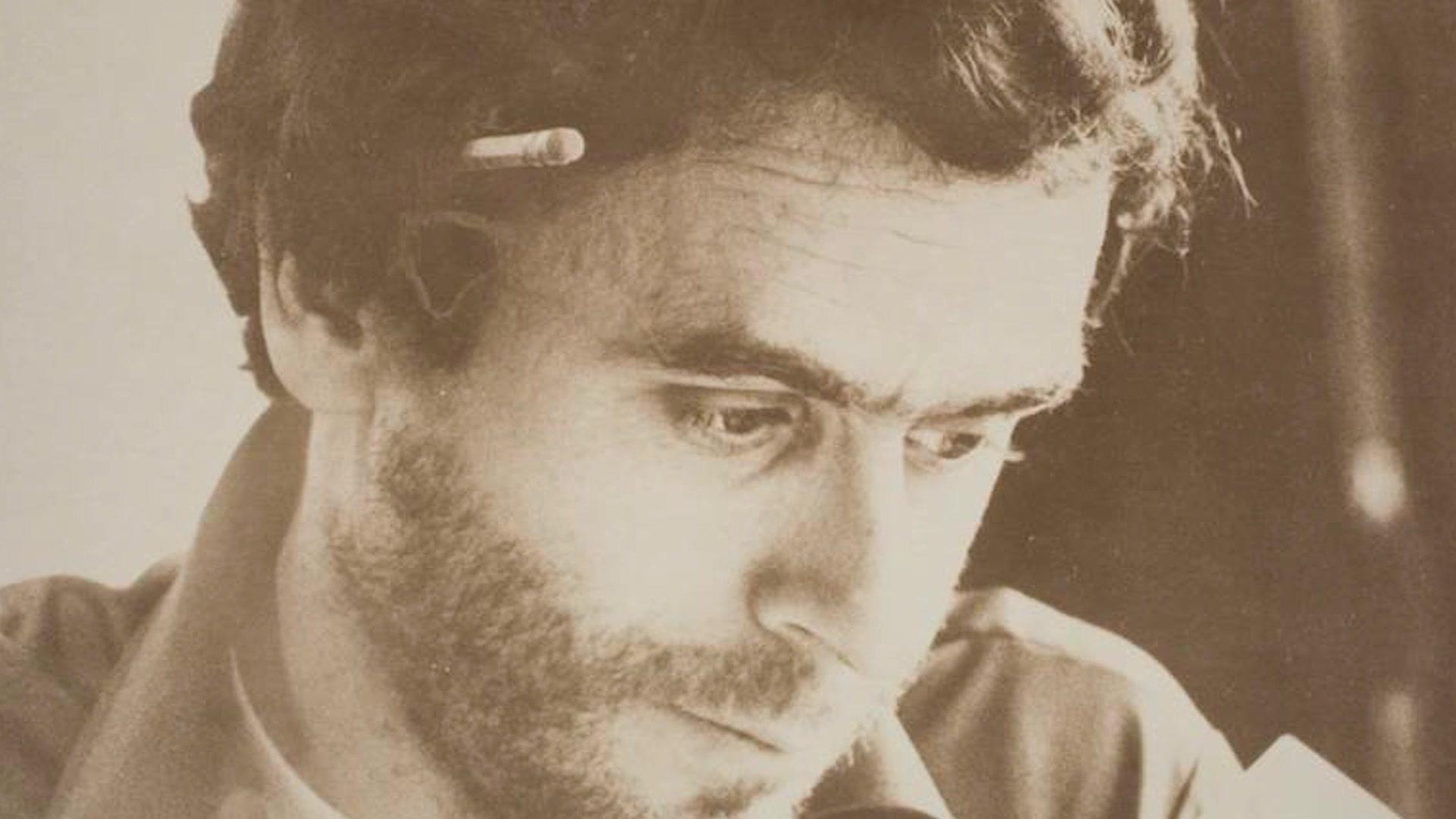Understanding The Legacy: What Did Ted Bundy's Daughter Say About Him
When it comes to notorious figures in history, Ted Bundy stands out as one of the most chilling names. His legacy, however, extends beyond the crimes he committed. The question remains: how does his daughter, who many didn't even know existed, feel about her father? This is not just a story about crime but a deeper dive into the human psyche and the impact of a parent's actions on their child.
So, let's break it down. Ted Bundy, a name that sends shivers down the spine of many, was not only a serial killer but also a father. His daughter, born during his incarceration, grew up in a world where her father's name was synonymous with horror. But what does she think about him? How does she navigate the complexities of being related to such a monstrous figure? These are the questions we will explore today.
As we delve into this topic, it's important to remember that understanding the legacy of someone like Ted Bundy isn't just about the crimes he committed. It's about the ripple effects of those actions, the people they touched, and the lives they altered forever. This article aims to shed light on the perspective of his daughter and how she views her father's legacy.
- Why Movierulz 18 Is A Controversial Topic And Why You Should Know About It
- Hd2movie Your Ultimate Destination For Highquality Movie Streaming
Biography of Ted Bundy: The Man Behind the Crimes
Ted Bundy, born Theodore Robert Cowell on November 24, 1946, in Burlington, Vermont, was an American serial killer and rapist. His charm and good looks belied the darkness within him, making him one of the most notorious criminals in American history. Bundy was convicted of murdering numerous young women during the 1970s, although the exact number of his victims remains unknown.
Below is a table summarizing some key details about Ted Bundy:
| Full Name | Ted Bundy |
|---|---|
| Date of Birth | November 24, 1946 |
| Place of Birth | Burlington, Vermont |
| Known For | Serial murders and rapes in the 1970s |
| Date of Death | January 24, 1989 (Execution) |
Who is Ted Bundy's Daughter?
Many people don't know that Ted Bundy had a daughter. Her name is Rose Chernin, and she was born in 1980 while Bundy was incarcerated in Florida State Prison. Her mother, Carole Ann Boone, was Bundy's legal assistant and later became his wife.
- 9x Flix Movie The Ultimate Guide To Streaming Bliss
- Hd Hub Movie 4u Your Ultimate Destination For Cinematic Bliss
Rose Chernin grew up without much knowledge of her father's infamous past. It wasn't until later in life that she began to understand the gravity of her father's crimes and the impact they had on society. Despite this, she has spoken publicly about her feelings regarding her father, offering a unique perspective on the legacy of Ted Bundy.
What Did Ted Bundy's Daughter Say About Him?
Rose Chernin has been relatively private about her life, but she has made a few public statements about her father. In interviews, she has expressed a complex mix of emotions—anger, sadness, and even some sympathy for the man who was both her father and a convicted killer.
She once said, "I don't know how to reconcile the man I knew with the monster he became." This sentiment reflects the internal struggle many children of notorious figures face. How do you separate the person you knew from the public perception of them?
Her Perspective on His Legacy
Rose Chernin's perspective on her father's legacy is nuanced. She acknowledges the harm he caused and doesn't try to justify his actions. However, she also believes that people are more than the worst things they've done. This belief is evident in her decision to become a counselor, helping others navigate their own struggles and traumas.
In one interview, she stated, "I hope people can see that even those who commit terrible acts are still human beings with the capacity to change. My father made choices that were unforgivable, but I also believe in the possibility of redemption."
The Impact of Parental Legacy on Children
Having a parent with a controversial legacy can be incredibly challenging. For Rose Chernin, it meant growing up with a name that carried a heavy burden. Many children in similar situations face judgment, stigma, and even ostracism from society.
- They often struggle with identity issues.
- They may feel compelled to distance themselves from their parent's actions.
- Some dedicate their lives to making a positive impact, as a form of redemption.
Rose's decision to become a counselor is a testament to her desire to create a positive legacy of her own, separate from her father's actions.
Understanding Ted Bundy's Crimes
To fully grasp the legacy of Ted Bundy, it's essential to understand the gravity of his crimes. Bundy was responsible for the deaths of at least 30 young women, although some believe the number could be much higher. His victims were typically young, attractive women, and he often targeted them in public places like college campuses and parks.
His methods were cunning and manipulative, often using his charm to lure victims into his car. Bundy's ability to blend in and appear normal made him even more dangerous. This dichotomy between his public persona and private actions is what makes his case so fascinating—and terrifying—to study.
Psychological Insights into Bundy's Mind
Psychologists have long studied Ted Bundy's mind, trying to understand what drove him to commit such heinous acts. Many theories exist, ranging from childhood trauma to a possible genetic predisposition toward violence. However, no definitive answer has been found.
What is clear is that Bundy had a deep-seated need for control and power, which manifested in his crimes. His ability to manipulate others and evade capture for so long highlights his intelligence and cunning nature.
The Media's Role in Shaping Bundy's Legacy
The media played a significant role in shaping Ted Bundy's legacy. From the moment he was arrested, his case captured the public's imagination. His good looks and charm made him a media sensation, and his trial was one of the most publicized in American history.
This media attention has had lasting effects. It has kept Bundy's name in the public consciousness long after his death, ensuring that his legacy continues to be discussed and debated. For his daughter, this means living with a name that is forever associated with horror.
Public Perception vs. Reality
Public perception of Ted Bundy often differs from the reality of his crimes. While many view him as a cold-blooded killer, others are fascinated by his charm and intelligence. This duality creates a complex image that is difficult to reconcile.
Rose Chernin has spoken about this disconnect, saying, "People often forget that my father was a human being, not just a monster. He had good qualities, too, but those are the things that get lost in the narrative."
Lessons from Ted Bundy's Legacy
Understanding the legacy of Ted Bundy offers valuable lessons about the human condition. It highlights the dangers of unchecked power and the importance of empathy. It also underscores the need for society to address issues like mental health and trauma, which can contribute to violent behavior.
For Rose Chernin, these lessons have shaped her life and career. She believes that by helping others, she can create a legacy of her own that is separate from her father's actions.
Creating a Positive Legacy
Rose's journey is a powerful example of how someone can rise above the shadows of their past. By choosing a career in counseling, she has dedicated her life to helping others heal from trauma and build better lives for themselves.
She once said, "I want to be remembered for the good I've done, not for who my father was. That's my way of creating a legacy that is truly mine."
Conclusion: Reflecting on the Legacy of Ted Bundy
In conclusion, understanding the legacy of Ted Bundy involves more than just examining his crimes. It requires looking at the broader impact of his actions on society and the people they touched. For his daughter, Rose Chernin, this legacy is a complex mix of pain and possibility.
As we reflect on this story, it's important to remember the lessons it offers. We must strive to understand the root causes of violence and work to create a world where such acts are less likely to occur. And for those who find themselves in Rose's position, we must offer support and understanding as they navigate the complexities of their own identities.
So, what do you think? Do you agree with Rose's perspective on her father's legacy? Share your thoughts in the comments below, and don't forget to check out our other articles for more insights into the human experience.
Table of Contents
- Biography of Ted Bundy: The Man Behind the Crimes
- Who is Ted Bundy's Daughter?
- What Did Ted Bundy's Daughter Say About Him?
- Her Perspective on His Legacy
- The Impact of Parental Legacy on Children
- Understanding Ted Bundy's Crimes
- Psychological Insights into Bundy's Mind
- The Media's Role in Shaping Bundy's Legacy
- Public Perception vs. Reality
- Lessons from Ted Bundy's Legacy
- Creating a Positive Legacy
Article Recommendations
- Unlock The World Of Entertainment With Vegamovies Rs
- Moviesda Movie Download 2024 Your Ultimate Guide To Stream And Download Movies Safely



Detail Author:
- Name : Mr. Joshua Grimes I
- Username : alec.kulas
- Email : lillian.cruickshank@simonis.com
- Birthdate : 1994-06-14
- Address : 8540 Botsford Valleys Apt. 221 Emardstad, NJ 87763-9977
- Phone : +1 (989) 362-4407
- Company : Eichmann Inc
- Job : Dental Laboratory Technician
- Bio : Consequatur quasi nobis voluptatem enim. Et dolorum corporis necessitatibus occaecati voluptatibus. Quisquam a ex explicabo et. Deleniti aut aut sunt cupiditate consequatur cupiditate fuga.
Socials
twitter:
- url : https://twitter.com/martinehagenes
- username : martinehagenes
- bio : Repellat aspernatur at non error vel minima voluptates. Adipisci numquam beatae dolores ut error. Eum odio ad ex pariatur saepe ducimus.
- followers : 1781
- following : 1585
linkedin:
- url : https://linkedin.com/in/martine_hagenes
- username : martine_hagenes
- bio : Unde nihil sit sequi et dolore dolor.
- followers : 3057
- following : 359
facebook:
- url : https://facebook.com/martine2666
- username : martine2666
- bio : Sint quasi accusamus laboriosam debitis natus quaerat.
- followers : 3883
- following : 91
instagram:
- url : https://instagram.com/martine.hagenes
- username : martine.hagenes
- bio : Magni dolorem a rerum odit perspiciatis. Voluptate quod explicabo nemo.
- followers : 3138
- following : 2571
tiktok:
- url : https://tiktok.com/@martine_hagenes
- username : martine_hagenes
- bio : Consectetur in dolorum expedita quis explicabo voluptates.
- followers : 4939
- following : 1020